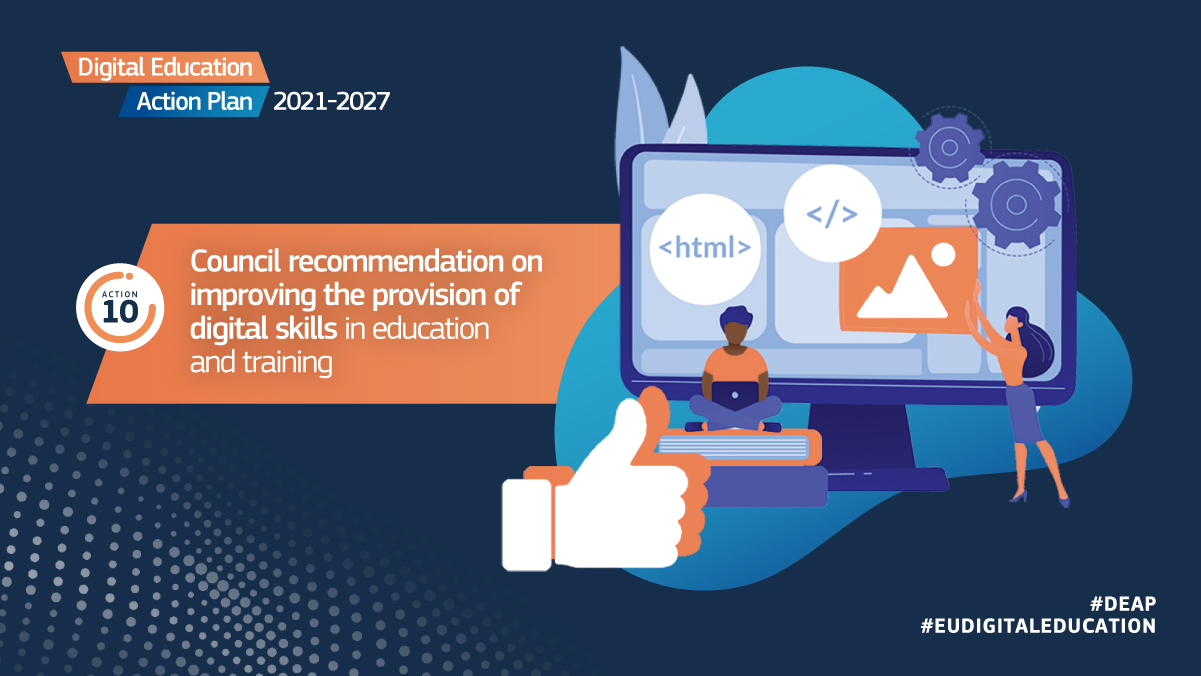
03 Aug ALL DIGITAL Response to Calls for Evidence for Council Recommendations on Enabling factors in digital education and on the Provision of digital skills in education and training
03 Aug, 2022
ALL DIGITAL, as a network of digital competence centres, welcomes the European Commission’s initiative on improving the provision of digital skills in education and training. The importance of digital competence and skill development for all cannot be overstated, and the successful building of a digital society rests on the provision of accessible, inclusive, and quality education and
training offers. Thereby, educators and trainers occupy a crucial role, and equipping them with the necessary competences and skills to effectively teach and train their learners.
Hence, it is essential to invest in training the trainers and teachers with the aim to improve their digital profile, their capacity to use digital technology in teaching and the opportunities of digital
pedagogy. Capacity building interventions must be designed and realised in an integrated and functional way, including appropriate didactic innovation strategies. The latter, in particular, currently rely too often on the initiative of too few individuals and lack concrete support from an institutional or financial level, diminishing their impact and compromising their sustainability.
While the central role of formal education and training towards equipping European citizens and residents with the adequate digital competences and skills is highly relevant, the role of non- and
informal learning is of equal if not even higher import. The majority of our digital skills come from life-wide learning experiences. As digital competence gaps increase by age group, correlating with the distance from the provision of formal education, the need for more flexible, targeted learning offers increases, too. Any proposal for a Council Recommendation, therefore, must also address non-formal and informal education and training as essential factors in the provision of digital skills.
The proposal should incorporate the recommendations and principle in the ALL DIGITAL Manifesto for Enhancing Digital Competences Across Europe.
The position papers is available in PDF here.
For further questions, please get in touch with Norman Röhner, ALL DIGITAL Policy Officer, at norman.rohner@all-digital.org






